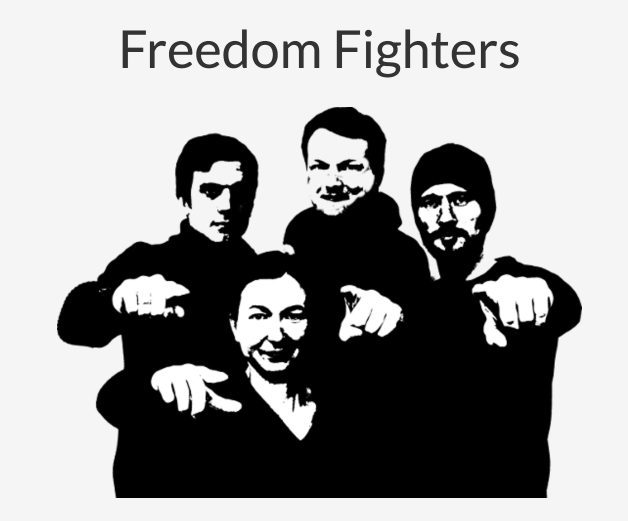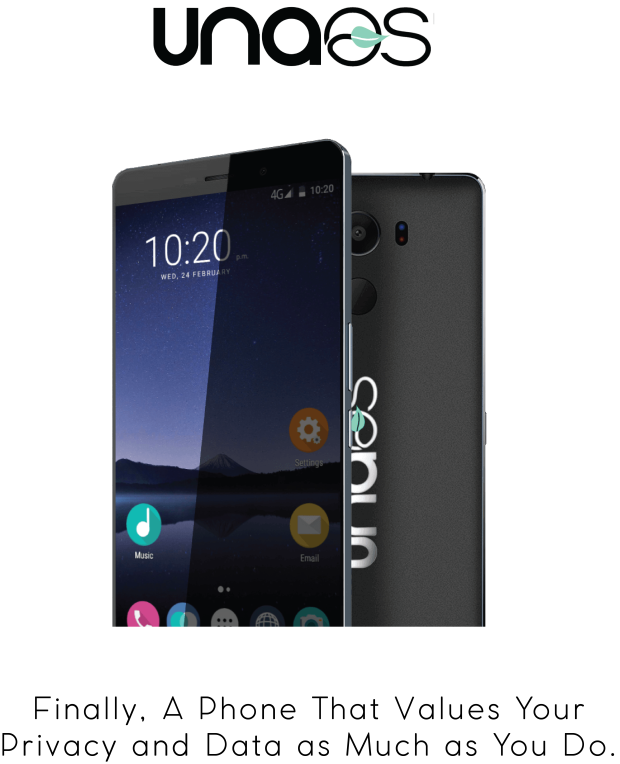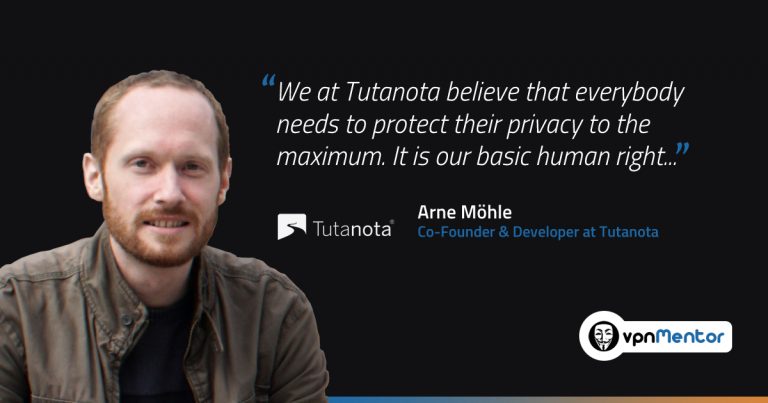Interview: Tutanota's Arne Möhle on Encrypted Email Benefits
Looking for a higher level of email security than regular Gmail? In this interview, Tutanota Co-Founder Arne Möhle tells us about his company and the many benefits of encrypted email. Share
Based out of Hanover, Germany, Tutanota is an open-source, end-to-end encrypted email service. This means email text, attachments, and contacts are protected by some of the most powerful encryption standards from creation all the way through delivery. With this innovative service, users can securely manage confidential email exchanges, even if the receiving party uses old-fashioned Gmail. And did we mention its core services are free?...

In the interview below, Arne Möhle, Co-Founder & Developer at Tutanota, talks to us about the benefits of encrypted email and its role in protecting the personal privacy of today’s internet users.
Questions Regarding Encrypted Email and Tutanota’s Services:
Tell us a bit of Tutanota’s background. How did the service develop and what is its mission?
We at Tutanota believe that everybody needs to protect their privacy to the maximum. It is our basic human right and if three-letter agencies don’t respect this, we need to take our privacy back the only way we can: with encryption.

Your name is a combination of Latin words that translates to “secure message.” Please describe your user base. Who uses Tutanota’s secure messages the most?
Everybody who is interested in privacy, really. More and more people understand that big companies like Google and Facebook use their data and make money with it. We believe this needs to stop. In Tutanota all data is encrypted so no one but the user can access it. That’s how we see the future of the internet: secure and private.
Your service makes encrypted email as easy to use as Gmail. Please describe some choices you made to make this user friendliness a reality.
We built a system that uses encryption by default. The user doesn’t even notice that his data is being securely encrypted, that’s why it’s so easy. We do this by encrypting the users’ encryption keys with their login password. We ask all our users to keep their personal password safe because no one has access to it. We can’t even reset it. If we could, we could get access to our users’ mailboxes, but this is exactly what has to be impossible for an encryption service to be truly secure.
Where do you see the biggest threat to a person’s private data: repressive governments cracking encryption or password/identity theft?
We see it differently: We don’t protect our private data because there is a threat, but because it is our human right to keep our private communication with my friends, with my family or with my bank private - whether it is face-to-face or online doesn’t make a difference here.
You recently ran a campaign to promote and sell the UnaPhone Zenith, which is billed as the “first truly private and secure” smartphone. What makes this phone so special?
It comes with it’s own OS that does not allow any tracking. For instance, it does not run any Google services or shady apps that might track their user. Unfortunately, our smartphone have turned into personal tracking devices that hand out data to third parties all the time - mostly without us noticing. The UnaPhone Zenith does the opposite. It does not hand out data to others, but keeps your communication, your location and everything else private.

Questions Regarding Personal Privacy
Your development team speaks passionately about the need for privacy as a cornerstone of democracy. Since you offer a free, open source service, is it fair to say this passion is what drives you forward?
Precisely. While we indeed need premium paying users to operate our service, the most substantial expense lies with our development team, rather than server space. This is why we encourage everyone to avail of our free services. As Bruce Schneier once stated, "Every time we use encryption, we protect someone who needs it to stay alive." With Tutanota, we aim for millions of people to employ encryption, thus making it exceedingly difficult for oppressive governments to surveil journalists, whistleblowers, and many others.
On the other side of the spectrum, many people think powerful privacy tools – like end-to-end encryption – help criminals and terrorists more than they help regular citizens. Do you worry about this?
No. Most recent terrorists were already known to the authorities, yet, they were not able to stop them.
Your website and Twitter feed mention several examples of repressive regimes of the past (the Gestapo, Stalin’s USSR, Mussolini’s Italy) and present (Putin’s Russia, North Korea, and Syria) as examples of what can happen in the future. Do you view encrypted email as a first line defense against such regimes?
Yes. Opposing parties in such regimes are faced with lots of difficulties. They need to be able to communicate privately.
In your view, what entity/organization challenges a person’s privacy more: internet giants like Google and Facebook or governments?
For the average person it is definitely Google and Facebook. But since you never know who is coming to power in the future - just remember Hitler was elected in a democratic way - governments can be much more dangerous for many people who don’t even think this possible right now.
Going forward, how do you see Tutanota’s role evolving in the fight for personal privacy?
We want to provide everybody with the opportunity to keep their private data private. Email here is just the start. We want to grow our service into a fully encrypted platform that lets users communicate on many levels. For instance, we plan to develop a fully encrypted calendar so that you can share appointments securely without letting third parties like Google know about them.




Please, comment on how to improve this article. Your feedback matters!